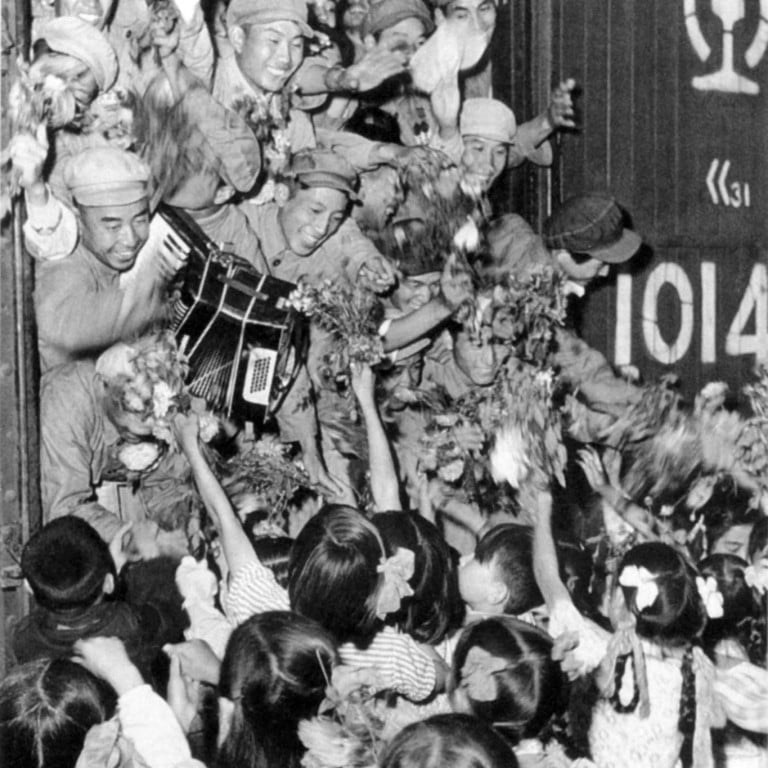
China's patience wearing thin with erstwhile ally North Korea
As China's star continues to rise, frustration is growing with its troublesome nuclear neighbour

But the ties are tarnishing under the passage of time and generational change, with China rising to the forefront of global economics and geopolitics while frustration grows with a frequently troublesome nuclear neighbour, say analysts and ordinary Chinese.
China sent hundreds of thousands of soldiers to the Korean peninsula, the infamous "human waves" that turned the tide early in the 1950-53 conflict, sending United Nations forces led by US General Douglas MacArthur retreating southward after they had pushed invading North Korean troops almost back to the Chinese border.
Historians debate the number of Chinese dead. Western estimates cite 400,000, while Chinese sources appear to have settled in recent years on a toll of about 180,000.
Whatever the true figure, the war, which ended in a truce on July 27, 1953, has for decades had a special place in modern Chinese history and identity.
It began less than a year after Mao Zedong and the Communist Party finally won China's cataclysmic civil war and established the People's Republic in 1949.
Mao Anying - Mao's eldest son - died fighting on the Korean peninsula and is a symbol of China-North Korea ties, once frequently described as being "as close as lips and teeth".
Xue, a retired psychiatrist who turns 94 in August, vividly recalls the mental condition of the countless soldiers he treated in a hospital in the northeastern Chinese city of Changchun, about 270 kilometres from North Korea, where they were brought from the front for treatment.
"These young people were all volunteers and full of patriotic fervour," the white-haired and bushy-browed Xue said in his apartment in a quiet.
"But repeatedly undergoing the fire of war tested them and they became mentally ill. In the hospital ward they would shout: 'Charge, kill, down with the American imperialists, defend the nation'. They all wanted to return to the front.
Xue emphasises the war's importance for Beijing, saying defeat for Pyongyang would have put China's Communist government in the crosshairs of the US.
"I think sending soldiers to North Korea was the right choice to defend the nation," he added. "It was a just war."
But patience with Pyongyang and its nuclear sabre-rattling is showing signs of running out.
China's new President Xi Jinping, born a month before the armistice ending hostilities was signed, issued a rare if indirect public rebuke to North Korea during a speech to visiting international political and business leaders in April.
Xi said there should be no tolerance for those who fostered "chaos for selfish gains", wording widely seen at the time as criticising Pyongyang without mentioning it by name. His comments came during months of provocations by North Korea, including a rocket launch seen as a disguised missile test, an atomic blast and threats of nuclear conflagration, and as the US and South Korea carried out joint war games.
Chinese support of Pyongyang was "definitely eroding," said Adam Cathcart, an expert on China-North Korea relations at Queen's University Belfast.
At the Military Museum of the Chinese People's Revolution in Beijing last week, visiting truck driver Pan Yude said China paid a high and worthwhile cost to defend its neighbour.
There's definitely a revision going on within China, whereas North Korea has really stuck to their narrative
But his attitude hardened when asked about North Korea today, describing relations with Pyongyang as merely "so-so" and blaming what he sees as North Korean stubbornness.
"If Russia and China didn't support it, it would have quickly ceased to exist" he said.
Cathcart says factors behind the changing attitudes include the passing of the war generation, North Korea's reluctance to publicly acknowledge China's sacrifices, and Beijing giving historians and commentators freer rein to examine past assumptions.
"There's definitely a revision going on within China, whereas North Korea has really stuck to their narrative. And they have really said Kim Il-sung is the main man, it's really about his genius," he said, referring to the North's founder and grandfather of current leader Kim Jong-un.
"And the Chinese think that's ludicrous."
